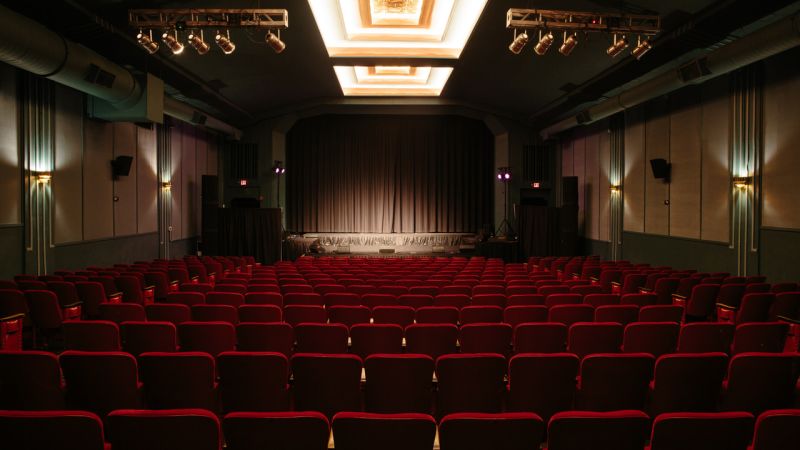The Parkway Theater in South Minneapolis has been a long-standing fixture for over 90 years, attracting generations of patrons to its lone movie screen. Despite facing various challenges such as wars, economic fluctuations, social movements, and the rise of digital streaming, the theater has persevered through the years. The movie exhibition industry continues to evolve, navigating obstacles like the pandemic, changing consumer preferences, and inflation. Data from Omdia reveals a decline in the number of cinemas and movie screens in the US since 2020, with larger operators closing underperforming sites and smaller cinemas shutting down.
The Parkway Theater, like many independent cinemas, has adapted to the changing landscape of moviegoing by transforming into a diverse venue that offers more than just film screenings. The owners, Ward Johnson and Eddie Landenberger, saw the need to create a nostalgic atmosphere while also incorporating performing arts and community events into their programming. Despite the challenges faced by the industry, theater operators have embraced innovation to stay afloat. From offering unique experiences like speed dating nights for movie buffs to hosting yoga classes with an ice plunge, cinemas are finding creative ways to engage audiences and generate revenue.
The economics of running a movie theater have shifted, with operators realizing the need to diversify revenue streams beyond concessions. The emphasis now lies on filling up theater capacity and offering a variety of experiences to attract customers. Although the pandemic has caused setbacks in the industry, with strike-related content delays affecting revenue projections, theaters are exploring new ways to attract audiences and adapt to the changing landscape of entertainment.
In Minneapolis, the Parkway Theater underwent a major renovation in 2018, revitalizing the space and incorporating art deco elements while preserving its historic charm. The theater hosts a variety of events alongside film screenings, including live music, comedy shows, and community gatherings. Similarly, Cinelounge in California and FilmScene in Iowa City offer a range of programming to cater to diverse audiences and foster community engagement. These cinemas have seen success by curating unique experiences for their patrons and investing in community relationships.
As cinema operators navigate the challenges of the industry, they are focusing on attracting customers through innovative programming and embracing their roles as showmen. Despite facing disruptions like the Hollywood actors and writers’ strike, theaters are looking to adapt and survive in a rapidly changing landscape. While there is a need for caution in eventizing every release to maintain the uniqueness of the cinema experience, operators are finding ways to differentiate themselves from larger chains and draw audiences to their venues. Mission-based organizations like Art House Convergence are also balancing the need to show exclusive films with the desire to offer diverse programming that aligns with their community-focused approach. Overall, the movie exhibition industry is undergoing a period of readjustment, with theaters evolving to meet the demands of modern audiences and changing market dynamics.













